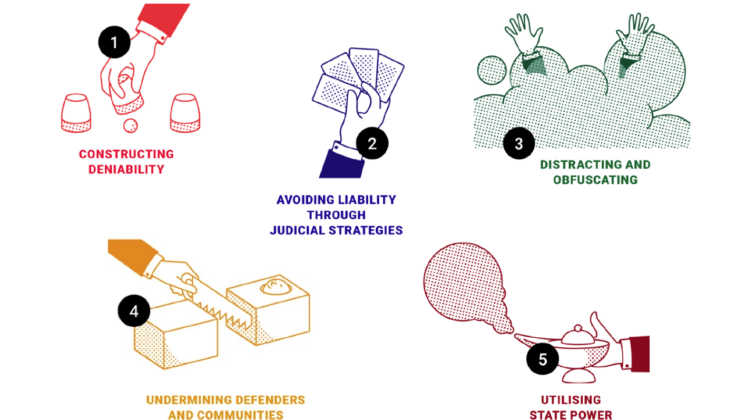The Mind the Gap project has developed a framework of five main strategies used by corporations to avoid responsibility for human rights and environmental impacts. Through a collaborative research process – including literature studies, surveys and consultations – a harmful corporate strategy has come to be defined as: a series of actions taken by a company that results in avoidance of responsibility for human rights or environmental impacts.
 Photo: Zeppa
Photo: ZeppaA wide variety of strategies
Mind the Gap has identified a total of 25 harmful strategies that can be grouped together under five main types of corporate strategies leading to the avoidance of responsibility for human rights and environmental impacts.
The five main strategies are:
- Constructing deniability
- Avoiding liability through judicial strategies
- Distracting and obfuscating stakeholders
- Undermining defenders and communities
- Utilising state power
Summary of harmful strategies framework
These strategies are further described, unpacked, and evidenced throughout this website.
Harmful effects
The strategies identified are not inherently illegal. In fact, some strategies that fall under our definition are legal and widely applied and accepted by managers, consultants, auditors, legal advisors, and other stakeholders as a way to protect corporate and shareholders’ interests. Nevertheless, while serving business interests, these strategies have harmful effects on society or the environment.
In practice companies apply several strategies simultaneously and over the course of time. The purpose of the corporate strategies framework presented is to enable civil society organisations and rights holders to analyse and expose the avoidance strategies of companies so that they can be tackled effectively.
The website sheds light on the harmful effects of the identified strategies, focuses on the wide use of these strategies, and calls on the business and the international community to close the underlying governance gaps.






